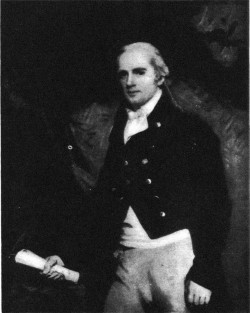
Friedrich Hayek rediscovers the importance of Henry Thornton’s early 19th century work on “paper credit” and its role in financing the British Empire (1802)
Found in: An Enquiry into the Nature and Effects of the Paper Credit of Great Britain
Friedrich Hayek considered Henry Thornton’s Enquiry into the Paper Credit of Great Britain (1802) to be one of the most important works on money and banking in the 19thC. It was written when Britain suspended cash payments in a financial crisis brought on by the war against France. Hayek observes that:
Money & Banking
To most of the contemporaries of Henry Thornton his authorship of the book which is now reprinted after one hundred and thirty-six years would by no means have been regarded as his major title to fame. To them the fact that he was a successful banker and a great expert on finance probably appeared as the indispensable but comparatively uninteresting background which put him in the position to be a great philanthropist and the effective advocate of every good cause; certainly it enabled him to provide at his comfortable Clapham home the meeting place for the active and influential group of Evangelicals, who, quite apart from the great rôle they played in their own time, were probably one of the most profound influences which fashioned the outlook and character that was typical of the English upper middle class of the nineteenth century… It was not until just before, and particularly since, the Great War, that, with the great interest which a number of American economists (particularly Professors Hollander and Viner) have shown in the history of English monetary policy and monetary doctrines, his importance came again to be fully recognized.